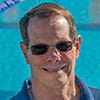Set the Bar High
Elevate expectations to bring out the best in your swimmers
Every Masters swimmer knows that hard work is required for improvement. In fact, after we reach a certain age, hard work is required just to keep from losing speed. This hard work comes in three primary areas:
- Metabolic adaptation—Training our muscles (including the heart and lungs) for strength, power, and endurance
- Technique—Reducing drag, improving stroke efficiency, mastering starts and turns, etc.
- Mental focus—Setting goals, understanding race strategy, adapting to the unexpected, etc.
Elements such as nutrition, recovery, and competitiveness cross over into each of the primary areas, but should also be considered part of the work involved.
Our athletes want to work hard every day, but distractions from their dry-side lives can get in the way. They can always benefit from an injection of inspiration to help them get over the inevitable motivational speed bumps. As coaches, it’s our job to stimulate that little bit of extra effort.
Envision Potential as Reality
I once told my swim coach of my goal to break 1:00 for a 100 butterfly that year, and I’ll never forget his sneering response: “You can’t do that!”
I recognize that a few people are highly motivated by wanting to prove others wrong, but I don’t believe that applies to most of us. To me, that coach’s response was disheartening and de-motivational. Most people want to know that their coach will support them in pursuit of their dreams, no matter how lofty those goals might be.
Encourage people to go faster than they think they can. A good coach can often identify a swimmer’s potential more accurately than the swimmer can. Don’t be afraid to ask swimmers to hit specific times or hold challenging intervals during workout, even if they complain that they’re tired. The more you demand of your team during the workout, the more likely swimmers will later say “Great practice—thanks, Coach!”
Help swimmers learn to believe in their strengths. Focus on what your swimmers do right by offering advice that capitalizes on their strengths. “The guy in lane three might take it out in front of you, but you’ll be able to reel him in during the last 200. Use that great closing speed to get around him quickly.” Or, “The work you’re doing on your dolphin kick is going to give you a big advantage on your starts and turns!”
Support each individual’s goals. When goals are particularly ambitious, make sure the swimmer understands the path to achievement, and the work that will be involved. Instead of saying “You can’t do that,” respond with “OK, let’s design a plan that will get us there.” Encourage swim meet participation as a way to track progress and see the positive results of all that training and effort.
Provide Encouraging Feedback
The maxim “praise publicly, criticize privately” is a good rule of thumb.
- Include desired results in comments—Rather than saying, “you’re lifting your head to breathe,” phrase it as, “keep your head in line with your spine when you breathe.” Instead of, “your turns suck,” say, “I’d like to see you hold your streamline when you come off the wall.” Not, “you’re loafing,” but rather, “I can tell you’ve got a 1:05 in you on this one. Let’s go for it!”
- Celebrate triumphs—In addition to announcing PRs and outstanding performance in workout sets, look for opportunities to have swimmers demonstrate good technique. Don't always default to using the fastest swimmer for demos. Find others within your team who have mastered a particular element, and show them off. Give everyone a chance to be recognized for what they bring to your team.
Get to know your swimmers. Be sensitive to factors that might influence a person’s performance. Perhaps she ran 10 miles before practice, or has been working a lot of overtime down in the salt mines, etc. Encourage them to perform at a high level that is appropriate for their current state.
Demand Technique Perfection
The only way swimmers will perform perfectly in competition is to make perfection a habit. This means that practice sets must be performed correctly. Require two-hand touches on breaststroke and butterfly, legal backstroke turns, no pulling on the lane ropes, proper technique on underwater pulls, etc.
If one of our swimmers rolls over onto his stomach on a backstroke finish during a set, we make the entire team repeat the set. Rules like that go a long way to help people focus on doing strokes properly while encouraging teammates to hold each other accountable.
Be demanding, but do provide your swimmers a fair shot at achieving the expected perfection. For example, one of my favorite butterfly endurance sets is the “perfect stroke 500.” Because most Masters swimmers cannot hold form for an entire 500-yard butterfly swim, all I ask is that they leave each wall with good underwater form and one or two perfect strokes of fly to begin each length. As soon as form deteriorates, they switch to freestyle until they reach the next wall. This way, they actually swim quite a bit of excellent butterfly without practicing with (and therefore habituating) fatigued technique.
Remember that having high expectations is not the same as being a tyrant. You can be nice, friendly, and supportive while simultaneously holding your swimmers to high standards. And they will appreciate you for it.
Categories:
- Coaches Only
SIGN UP FOR UPDATES FROM USMS

















